
Katharine Mieszkowski
Senior Reporter

Senior Reporter
Katharine Mieszkowski covers the environment for The Center for Investigative Reporting, where she focuses on food and water. Katharine joined CIR in 2011, through the merger with The Bay Citizen. Previously, she was a senior writer for Salon and Fast Company. Katharine’s work has appeared The New York Times, Rolling Stone and Mother Jones, as well as on NPR’s "All Things Considered." A graduate of Yale, she grew up in Texas.
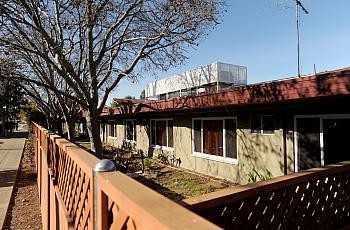
<p>Last year, the California started releasing medically-incapacitated felons into nursing homes under a new program called medical parole. But which nursing homes are taking these patients?</p>
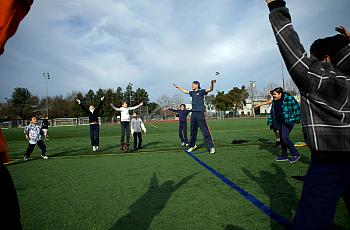
<p>Researchers from the University of California, San Francisco have quantified just how little physical education students at public elementary schools in the city get. At many schools, kids get far less than the state requires. </p>
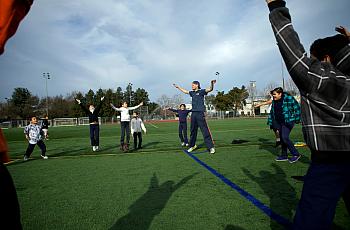
<p>Children in first through sixth grades in California schools are supposed to do a minimum of 200 minutes of physical education every 10 school days. Sorry, recess doesn't count. This fact will likely surprise many parents of elementary school kids, who know that their children do much less.
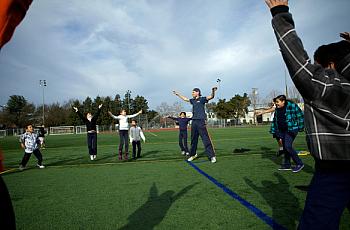
<p>When school budgets are cut, what does it take to keep physical education afloat in one Northern California school district? Outsourcing to fitness organizations plus a small army of parent volunteers, educators and foundations.</p>
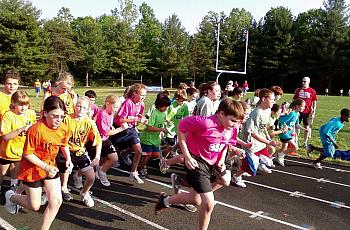
<p>Only 31 percent of public school students in California who took the 2011 statewide Physical Fitness Test received healthy scores on all six different measurements of fitness the test scores. Sounds pretty bad, doesn't it? </p>
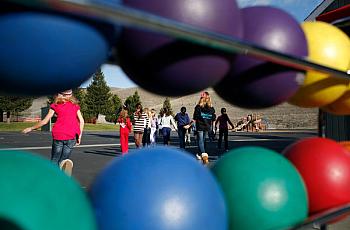
<p>Could socioeconomic factors explain why some kids are more physically fit -- and therefore healthier -- than others? Katharine Mieszkowski examines kids' physical fitness and health in one California community.</p>
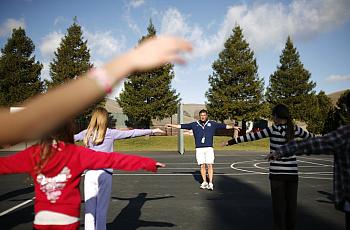
<p>Students at Sycamore Valley have a lot to be happy about when it comes to their physical fitness. Fifth graders there got the best scores among all of their Bay Area peers on the 2011 statewide Physical Fitness Test.</p>
<p>California kids are slightly less likely to be overweight than they were five years ago.</p>